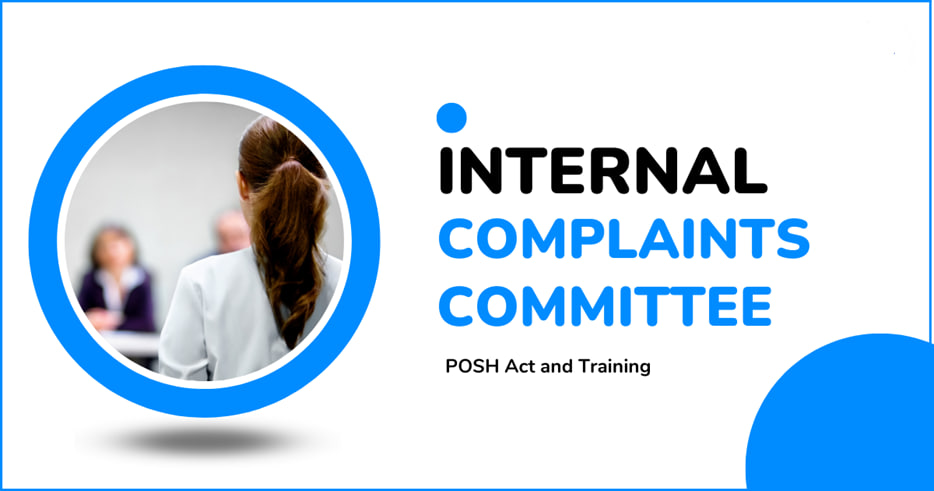Description

Copyright infringement not intended
Context: Half of India's national sports federations don't have an internal complaints committee (ICC), as required by the Sexual Harassment of Women at Workplace (Prevention, Prohibition, and Redressal) Act, 2013, which requires every organisation with more than 10 employees to have an ICC to deal with sexual harassment cases.
Details
About
- Internal Complaints Committees (ICCs) are statutory bodies that are established under the Sexual Harassment of Women at Workplace (Prevention, Prohibition and Redressal) Act, 2013 (POSH Act) in India.
Composition
- According to the POSH Act, every employer who has 10 or more employees is required to constitute an ICC at each workplace.
- The ICC should consist of at least four members
- At least 50% should be women.
- One should be a senior woman employee as the presiding officer.
- One should be an external member from a non-governmental organization or a legal background.
- The ICC members should be appointed for a term of 3 years and should undergo regular training on the POSH Act and related issues.

Objectives
- The main objective of ICCs is to provide a mechanism for addressing complaints of sexual harassment of women in the workplace and ensuring a safe and conducive work environment for them.
- To provide a safe and conducive work environment for women, in line with the constitutional principles of gender equality and dignity.
- Conduct a fair and impartial inquiry into the complaints, provide interim relief and protection to the complainants, recommend appropriate action against the perpetrators, and ensure compliance with the provisions of the Act.
Powers and Functions
Inquiry
- Receive and inquire into complaints of sexual harassment from aggrieved women fairly and confidentially.
- Take suo moto cognizance of incidents of sexual harassment at the workplace and initiate action as per the POSH Act.
- Conduct an inquiry into the complaint following the principles of natural justice and submit a report with recommendations to the employer within 90 days.
Support
- Provide assistance and support to the aggrieved women, such as counselling, medical aid, legal aid, etc.
- Initiate conciliation between the parties, if requested by the aggrieved woman, and settle the matter amicably.
Take Action
- Recommend appropriate action against the respondent, such as warning, transfer, suspension, termination, etc., depending on the gravity of the offence.
- Recommend compensation to the aggrieved woman, considering her mental and physical trauma, loss of career opportunity, medical expenses, etc.
Monitoring
- Monitor the implementation of the recommendations and submit periodic reports to the employer and the District Officer.
Awareness
- Create awareness and sensitization among employees on the POSH Act and the prevention of sexual harassment in the workplace.

Challenges
- Lack of awareness and sensitization among employees and employers about the Act and the role of ICCs.
- Lack of adequate training and capacity building for ICC members on legal and procedural aspects, gender issues, communication skills, etc.
- Lack of resources and infrastructure for ICCs to function effectively, such as dedicated office space, staff, budget, etc.
- Lack of cooperation and support from the management and other stakeholders in implementing the recommendations of ICCs.
- Lack of monitoring and evaluation mechanisms to assess the performance and impact of ICCs.
Steps need to be taken
- Conduct regular awareness and sensitization campaigns for employees and employers on the Act and the role of ICCs.
- Providing periodic training and capacity building for ICC members on legal and procedural aspects, gender issues, communication skills, etc.
- Ensuring adequate resources and infrastructure for ICCs to function effectively, such as dedicated office space, staff, budget, etc.
- Seeking cooperation and support from the management and other stakeholders in implementing the recommendations of ICCs.
- Establishing monitoring and evaluation mechanisms to assess the performance and impact of ICCs.
Conclusion
- The ICC plays a crucial role in ensuring a safe and conducive work environment for women. By addressing the challenges and enhancing their effectiveness, ICCs can contribute to the prevention and redressal of sexual harassment in the workplace, and promote gender equality and dignity in society. The ICC also helps in creating a positive work culture that fosters gender equality and mutual respect among employees.
|
PRACTICE QUESTION
Q. Internal Complaints Committees (ICC) deal with complaints of sexual harassment of women employees. It faces various challenges such as lack of awareness, inadequate resources, procedural delays, bias, victimization, and non-cooperation from the employer or the parties involved. How ICC can overcome these challenges to function effectively and redress sexual harassment of women in the workplace in India?
|
https://indianexpress.com/article/explained/explained-sports/probing-wfi-in-january-govt-had-flagged-the-need-to-comply-8590199/











